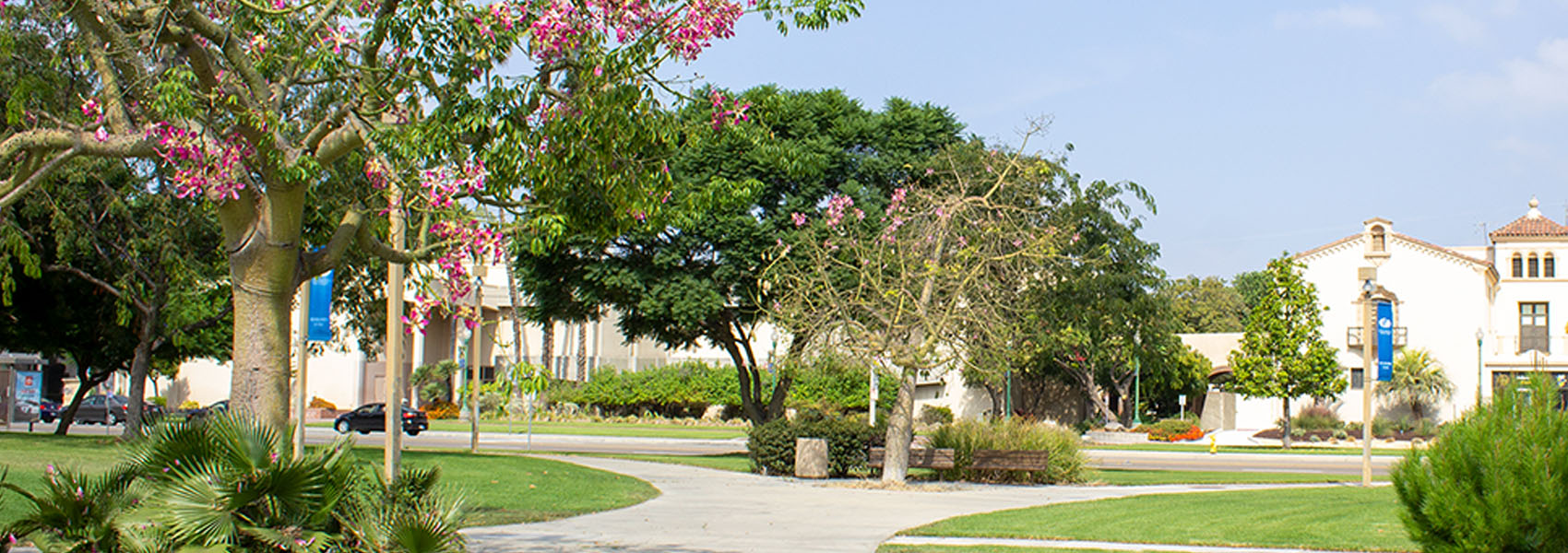Big Strides in Sustainability at Fullerton College
Fullerton College is on its way to a greener future.
The Sustainability Committee at Fullerton College has made important strides in helping set a foundation for more sustainable practices at Fullerton College and in North Orange County Community College District. This work, which began in 2019, has led to an Environmental Sustainability Policy and accompanying Administrative Procedure that follows the national standards of the Association for Advancement of Sustainability in Higher Education (AASHE).
The Administrative Procedure was adopted by the NOCCCD Board of Trustees on February 8, 2022.
“These huge sustainability wins are fruits of the work of the entire campus community. Dozens of people in shared governance bodies have reviewed, edited, and advocated for the implementation of these foundational documents, especially our fierce student leaders. I especially credit Megan Moscol, the co-chair of the committee, who continues to offer her expertise to guide us with great clarity to take leaps in the right direction,” said Geography professor and Environment Sustainability Committee co-chair, Aline Gregorio.
The policy documents follow the national standards of AASHE. Their tracking system identifies sustainability holistically, based on the integration of sustainability principles in the areas of Academics, Planning and Administration, Engagement, and Operations.
“Now with our new interim director of Sustainability, we are looking forward to moving the needle quickly in implementing some of these policy directives,” Gregorio said.
In the Summer of 2021, Tyler Deacy joined the team as Interim Director of Sustainability at Fullerton College. Deacy was hired to complete AASHE’s Sustainability Tracking, Assessment & Rating System (STARS) assessment to identify an action plan.
While sustainability planning via policy and data-driven benchmarking has been the priority of the Sustainability Committee, the group also continues to advocate for divestment of fossil fuels at the state level.
In Fall 2020, a collaboration with Fossil Free California led to a Divestment Resolution that was unanimously recommended by the committee and unanimously adopted by United Faculty to communicate the resolve to divest teacher’s pension funds (Cal STRS and Cal PERS) from fossil fuels investments. Divestment is a growing worldwide strategy to mitigate climate change. The California Community College (CCC) system remains an outlier, as the University of California System, the California State University System, the University of Southern California, and De Anza and Mt. San Antonio Community Colleges have joined Ivy League institutions including Harvard and Columbia among almost 1,500 other global institutions in a collective effort to divest from fossil fuels, successfully securing $40 trillion dollars of divestment pledges globally.
As the committee moves forward with climate action, members continue to find alliances in the CCC system to make strides on divestment. The NOCCCD Board of Trustees has been receptive to this direction, signaling interest in reviewing existing investment policies to integrate sustainability principles and carbon-free investments.
Prior to these developments, NOCCCD remained as a regional outlier lacking any institutionalized commitments to environmental sustainability.
“As thousands of students return to the campus space, they are returning to an entirely different blueprint – one that will better gauge and improve the ecological footprint of our campus community,” Gregorio said.
Learn more about Fullerton College Sustainability Committee.






